Planning worship?
Check out our sister site, ZeteoSearch.org,
for 20+ additional resources related to your search.
- |
User Links
Person Results
William Whittingham
1524 - 1579 Person Name: W. W. Author of "Nisi quia Dom" in The Whole Booke of Psalmes
William Whittingham
Martin Tel
Author of "Our Help Is in the Name of God the LORD" in Psalms for All Seasons Martin Tel is the C. F. Seabrook Director of Music at Princeton Theological Seminary in Princeton, New Jersey. He conducts the seminary choirs, teaches courses in church music, and administers the music for the daily seminary worship services. He served as senior editor of Psalms for All Seasons: A Complete Psalter for Worship (2012). His love for music began in a dairy barn in rural Washington State, where he heard his father belt out psalms and hymns while milking the cows. Martin earned degrees in church music and theology from Dordt College, the University of Notre Dame, Calvin Theological Seminary, and the University of Kansas. He has served as minister of music in Christian Reformed, Reformed Church in America, and Presbyterian congregations. With his wife, Sharilyn, he is raising three children in Princeton, New Jersey.
Lift Up Your Hearts
Martin Tel
Jeremy Taylor
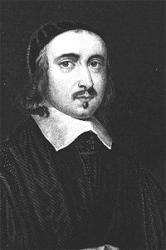
1613 - 1667 Author of "Descend to thy Jerusalem, O Lord!" in Services for Congregational Worship. The New Hymn and Tune Book Taylor, Jeremy, D.D. This poet of preachers was born of very humble parentage on both sides, at Cambridge, in August, 1613. His father was a barber. He must have had a good school as a boy. He entered Cams College, of his native city, as a "sizar" in 1626. His career at the university was a brilliant one. He was made fellow of All Souls College, Oxford, in 1632; and rector of Uppingham, Rutlandshire, in 1638, as is still proudly remembered there. He was inevitably "sequestered" by Parliament in 1642. Inexorable necessities of circumstance put him in prison. During the opening of the great Protectorate he kept a school in Wales along with William Nicholson, and acted as chaplain to the Earl of Carberry at Golden Grove, Carmarthenshire, one of the pilgrim spots of our country, because of this and of his imperishable book named after it. In 1658 he is found in Ireland. He preached at Lisburn and Portmore. He returned to London early in 1660, and signed the loyalist or royalist Declaration of the Nobility and Gentry, on April 24th, thirty-five days before the "Restoration." He was not overlooked, as so many faithful royalists were. He was consecrated bishop of Down and Connor in January, 1661; made a member of the Irish Privy Council in February; entrusted with the diocese of Dromore in March: and in the same year was chosen Vice-chancellor of the University of Dublin. He died at Lisburn, August 13th, 1667, and was interred in the choir of the cathedral of Dromore.
Bishop Taylor's complete works have been repeatedly edited, e.g. by Henry Rogers, Pitman, Bishop Heber, Eden; and manifold Selections and single books, as his Holy Living and Holy Dying. Notwithstanding his rich and im¬perial intellect, and enthralling eloquence, and absolute command of words, Bishop Taylor holds only a very small place in the Antiphon of England. It has been admirably said by Dr. Rowland Williams, "Poetry differs from eloquence, as love differs from friendship" (Stray Thoughts, 1878). His attempts at verse are eloquence, not poetry, and even the eloquence hampered and shallowed. The present writer collected his entire poems and verse-translations in the Miscellanies of the Fuller Worthies' Library (1870). In the "Introduction" the reader will find a critical ac¬count of the various hymns; and also therein an account is furnished of a flagrant misap¬propriation of Bishop Taylor's Hymns by Samuel Speed in his Prison Piety, or Meditations divine and moral. Digested into poetical heads on mixt and various subjects (1677). The following is the original title page of the volume in which all the Festival Hymns, save one, first appeared:—>
The Golden Grove, or a Manuall of Daily Prayers and Letanies Fitted to the dayes of the Week. Containing a short Summary of what is to be Believed, Practised, Denied. Also Festival Hymns According to the manner of "The Ancient Church." Composed for the Use of the Devout, especially of Younger Persons; By the Author of "The Great Exemplar." London: Printed by J. F. for R. Rayston, at the Angel in Ivie Lane, 1655. (12 mo.) A 2nd edition appeared in 1657 with the Author's name thusBy Jer. Taylor, D.D., Chaplain in Ordinary to his late Majesty—a courageous announcement in the circumstances. A 3rd edition seems to have disappeared. The 4th ed. appeared in 1659; and from it is derived the second Christmas Hymn, “Awake, my soul," which was not in either the 1st or 2nd ed. Heber, Pitman, and Eden overlooked this hymn. [Rev. A. B. Grosart, D.D., LL.D.]
From Bishop Taylor's Golden Grove, 1655, the following hymns are in common use:--
1. Full of mercy, full of love. Prayer for Charity. From the Golden Grove, p. 116, where it is given in 20 lines, and headed, "A Prayer for Charity." It was given in Bishop Heber's posthumousHymns, &c, 1827, p. 109, and thus came into later hymnbooks.
2. Lord, come away, why dost Thou stay. Advent.
3. Lord, let Thy flames of holy charity. Whitsunday. This begins with line 12 of his hymn in the Golden Grove, "On the Feast of Pentecost, or Whitsunday," p. 157.
His Christmas Carol, "Where is this blessed Babe” and his Prayer, "My soul doth pant towards Thee," are also from the Golden Grove.
-- John Julian, Dictionary of Hymnology (1907)
Jeremy Taylor
T. A. Lacey
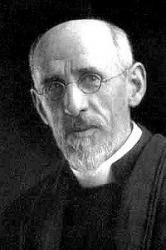
1853 - 1931 Person Name: Thomas Lacey Author of "The Dying Robber Raised His Aching Brow" in The Cyber Hymnal Lacey, Thomas Alexander, s. of G. F. Lacey, was b. at Nottingham, Dec. 20, 1853. He entered Balliol Coll., Oxford, as an exhibitioner in 1871 (B.A. 1876, M.A. 1885), was ordained D. 1876, P. 1879, was from 1894 to 1903 Vicar of Madingley near Cambridge, and since then has been Chaplain of the London Diocesan Penitentiary. He was one of the Committee who compiled The English Hymnal, 1906, and contributed to it twelve translations (8, 66, 67, 69, 104, 123, 124, 174, 208, 226, 249, 325), also one unpublished and one previously published original, viz.,
1. O Faith of England, taught of old. [Church Defence.]
2. The dying robber raised his aching brow. [Good Friday.] First in the Treasury, Sept. 1905, p. 482, headed "Sursum."
Three other translations by him are noted at pp. 989, i. 1139, ii. [Rev. James Mearns, M.A.]
--John Julian, Dictionary of Hymnology, New Supplement (1907)
T. A. Lacey
Melancthon Woolsey Stryker

1851 - 1929 Person Name: M. W. S. Author of "O Thou, Eternal, Changeless, Infinite!" in College Hymnal Stryker, Melancthon Woolsey, D.D., son of the Rev. Isaac Pierson Stryker, was born at Vernon, New York, Jan. 7, 1851, and educated at Hamilton College (1872) and Auburn Theological Seminary (1876). In 1876 he entered the Presbyterian ministry as Pastor at Auburn, New York. In 1878 he removed to Ithaca, N. Y.; in 1883 to Holyoke, Massachusetts, and in 1885 to Chicago, Illinois. He received his degree of D.D. from Hamilton College in 1889. He has edited Christian Chorals, 1885 ; New Alleluia, 1880-86; and Church Song, 1889. He was also joint editor with H. P. Main of The Church Praise Book, 1882. He has also published Hymns and Verses, 1883, and Song of Miriam, and Other Hymns and Verses,
1888. To two of these works which have been designed for daily use in divine worship Dr. Stryker contributed the following original hymns:—
i. The Church Praise Book, 1882.
1. Burst forth, 0 Bridegroom, from Thy chamber bright. Second Advent Desired. (1880.)
2. Death cannot make my soul afraid. Death Contemplated. (1881.)
3. Eternal day hath dawned. Heaven. (1881.)
4. Mighty God, Thy Church recover. Missions. (1881.)
5. King again, ye starry chime. Christmas. (1881.)
6. Sing, Israel, for the Lord your strength. Passing the Red Sea. (1878.)
7. The tribes of faith from all the earth. Heaven. (1881.)
8. Thy Kingdom come, 0 blessed Son of God. Second Advent Desired, (1880.) Re-written in Church Song, 1889, as "Thy Kingdom come, 0 everlasting Lord."
9. When the everlasting Lord. Morning. (1880.)
ii. Church Song, 1889.
10. Arouse Thy Church, Almighty God. Missions. (1887.)
11. Father, as here we bow. Holy Trinity. (1886.)
12. Four hundred years their course have sped. American National Hymn. (1888.)
13. God of our Fathers, our God to-day. National Hymn. (1889.)
14. Lo, where that spotless Lamb for sin provided. Passiontide. (1884.)
15. My Maker, at Thy holy throne. Holy Baptism. (1888.)
16. O God, Thy judgments give the King, Thy Son. Missions. (1883.)
17. O Thou, Eternal, Changeless, Infinite. Praise to God. (1882.)
18. 0 Thou, Omnipresent. Omnipresence of the Father. (1885.)
19. O Thou Shepherd of Thine Israel, hear us. Ps. lxxz. (1883.)
20. Our God, and our Redeemer. Opening of a Place of Worship. (1883.)
21. Robbed, bruised, and dying, once I lay. The Good Samaritan. (1886.)
22. Sing, every boy and maiden. Praise to God. (1885.)
23. Thou, Lord of my life, by the words Thou hast said. Lent. (1887.)
24. Thy grace is all of grace. Divine Grace. (1886.)
25. To Thee, our God, these babes we bring. Holy Baptism. (1886.)
26. Tranquilly, slowly, solemnly, lowly. Burial. (1884.)
27. We close Thy blessed Word. Sunday Evening. (1S87.)
28. While all the night-stars fade and wane. Easter. (1884.)
In addition to these original hymns Dr. Stryker has several translations from the German which are in common use. One of his hymns, No. 513, "Now I lay me down to sleep" (Child's Evening hymn), in Church Song, 1889 (dated 1884), begins with a stanza by another hand. In the same work there are also several of his tunes. Dr. Stryker's hymns are massive and rugged, full of dogmatism and fire, but they lack unity and purity of rhythm. In some instances words stand for thoughts, and exclamations for ideas. Nevertheless a few will live.
-- John Julian, Dictionary of Hymnology (1907)
=================
Stryker, M. W., pp. 1098, i.; 1525, ii. 7; 1615, iv. In 1892, Dr. Stryker became Presi¬dent of Hamilton College and also received the LL.D. from Lafayette College. His College Hymnal, 1897, 1904, contains 28 of his hymns, the majority of which date 1890-1894. Of these "From doubt and all its sullen pain" (Faith), written in 1890, is found in other collections. Dr. Stryker d. in 1905. His Dies Irae was published 1892, and his Latermath (verse) 1896.
--John Julian, Dictionary of Hymnology, New Supplement (1907)
Melancthon Woolsey Stryker
Taylor Burton-Edwards
Author of "Our Hope, If We Will Find It, Is in Christ" in Discipleship Ministries Collection Director of Worship Resources with Discipleship Ministries, The United Methodist Church
Taylor Burton-Edwards
Boethius
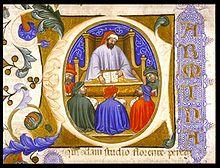
480 - 524 Person Name: A. M. S. Boethius Author of "O thou whose power o'er moving worlds presides" in Hymns of the Spirit for Use in the Free Churches of America Anicius Manlius Severinus Boëthius, commonly called Boethius(English: /boʊˈiːθiəs/; also Boetius /boʊˈiːʃəs/; c. 480–524 AD), was a Roman senator, consul, magister officiorum, and philosopher of the early 6th century.
See more in:
Wikipedia
Boethius
Walter Russell Bowie
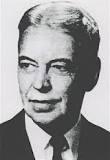
1882 - 1969 Author of "God of the Nations, who from dawn of days" in Hymns of the Spirit for Use in the Free Churches of America Walter Russell Bowie (October 8, 1882–April 23, 1969), was a priest, author, editor, educator, hymn writer, and lecturer in the Episcopal Church (United States).
See also in:
Wikipedia
Walter Russell Bowie
Martin Shaw

1875 - 1958 Person Name: Martin Shaw, 1875-1958 Arranger of "OLD 124TH" in Together in Song Martin F. Shaw was educated at the Royal College of Music in London and was organist and choirmaster at St. Mary's, Primrose Hill (1908-1920), St. Martin's in the Fields (1920-1924), and the Eccleston Guild House (1924-1935). From 1935 to 1945 he served as music director for the diocese of Chelmsford. He established the Purcell Operatic Society and was a founder of the Plainsong and Medieval Society and what later became the Royal Society of Church Music.
Author of The Principles of English Church Music Composition (1921), Shaw was a notable reformer of English church music. He worked with Percy Dearmer (his rector at St. Mary's in Primrose Hill); Ralph Vaughan Williams, and his brother Geoffrey Shaw in publishing hymnals such as Songs of Praise (1925, 1931) and the Oxford Book of Carols (1928). A leader in the revival of English opera and folk music scholarship, Shaw composed some one hundred songs as well as anthems and service music; some of his best hymn tunes were published in his Additional Tunes in Use at St. Mary's (1915).
Bert Polman
Martin Shaw
Samuel Johnson
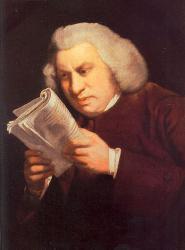
1709 - 1784 Author of "O thou whose power o'er moving worlds presides" in Hymns of the Spirit for Use in the Free Churches of America
Samuel Johnson


 My Starred Hymns
My Starred Hymns


